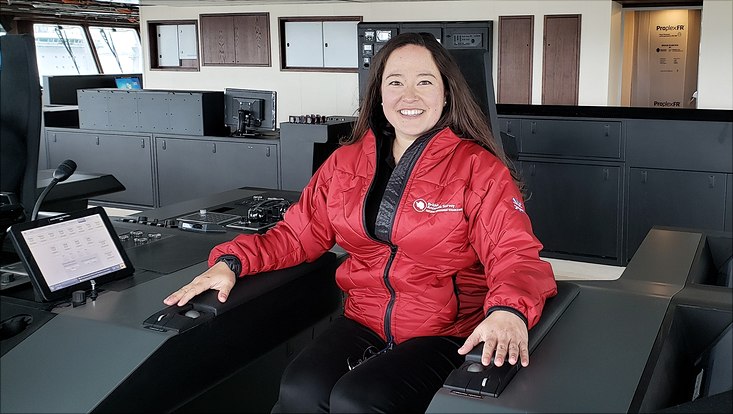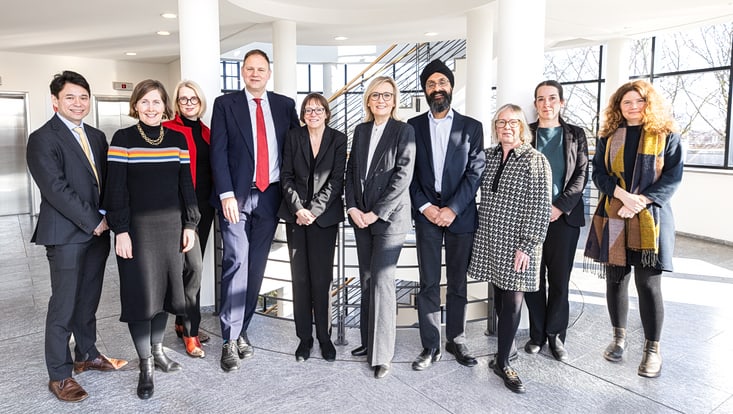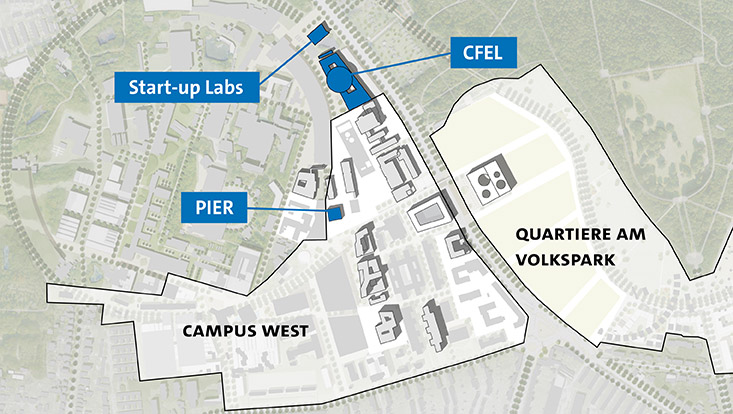“Welcome Aboard!”"I make measurements of the oceans as they are today"Prof. Dr. Eleanor Frajka-Williams joined Universität Hamburg in July 2022
12 September 2022, by Frajka-Williams/Red.

Photo: private
Every year, Universität Hamburg welcomes many new researchers. Here, we present part of a series to introduce them and their areas of research.
Prof. Dr. Eleanor Frajka-Williams joined Universität Hamburg in July 2022 as a Professor for Ocean Dynamics in a Changing Climate, in the Faculty of Mathematics, Informatics and Natural Sciences, as well as the Center of Earth System Research and Sustainability (CEN) and the Cluster of Excellence “Climate, Climatic Change, and Society” (CLICCS).
My research area in 3 sentences:
I study the ocean circulation, how it is responding to climate change and how they are driving climate change. For example, I investigate how the Gulf Stream and the ocean conveyor system redistribute heat around the Atlantic. I am also interested in how, as the climate warms and polar ice caps melt, the increase in freshwater changes the ocean circulation.
I explain what I do to my children and my grandma as follows:
I am an ‘experimental’ physical oceanographer which in this case means I make measurements of the oceans as they are today: how warm or salty the water is, and how quickly it is moving or mixing. With these measurements, I try to figure out the physical processes of water movement and water transformation (changes in temperature or salinity), or how the oceans are interacting with the atmosphere or cryosphere. Some of what we measure can be difficult to simulate accurately in ocean and climate models, and so these measurements enable us to better understand basic processes and can provide a valuable check on climate simulations.
Why do you do that?
Because it is both super interesting and fundamentally important to a healthy future for humans on planet earth. Originally, I discovered the field of oceanography because it was a way to combine my interest in math and computing with a love of the outdoors.
My research is important to society, to help resolve the following issues:
I am focusing on understanding the processes of climate change. How does the ocean interact with the cryosphere, the atmosphere? It´s basic research that helps us get an accurate view of how the oceans change today, and can help improve climate projections on the long run.
My plans for working at Universität Hamburg include:
I plan to expand the capability of experimental oceanography in Hamburg towards using both long-term underwater moored observations and autonomous platforms like gliders. These equipment will substantially improve our ability to measure small-scale processes (centimeter to 10s of kilometers) in remote regions like the polar oceans. These are areas which are historically under-sampled due to the presence of sea-ice and bad weather—two things which complicate traditional measurements by ship. More broadly, I am also looking forward to working with colleagues in the CEN and CLICCS – the diversity of expertise represented means that—by working together—we can better place our science in the broader context of the Earth system, and better understand how the changing climate is impacting society.
This is why students should come to my courses:
To get a hands-on view of what is going on in the oceans. It is essential and valuable to learn the equations which describe ocean circulation, and how the oceans interact with other parts of the Earth system. However, I hope to provide more hands-on experience including things like: using small rotating tables to ‘watch’ ocean eddies and gyres in the classroom, how to use ocean instruments to make climate-quality measurements, how to plan fieldwork and how to analyse in situ observations once you have them. I hope to convey a sense of the adventure as well as the science of ‘doing oceanography’.
That's why I am glad to be in Hamburg:
Hamburg is a strong center of excellence for climate science in Germany with both CEN and CLICCS. So I am looking forward to working with new colleagues and to connecting my work on the oceans with the societal impacts of climate change. I also really love the city of Hamburg itself, with the eclectic combination of old and new buildings, excellent public transport and bike paths, and the cityscape interspersed with parks and water—at least canals and the Elbe river, even if there are no oceans nearby!


